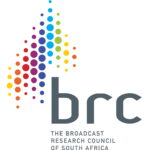By the Advertising Media Forum (AMF)
The media industry in many markets stares down a barrel of uncertainty. The eco-system of publishers, broadcasters and media agencies face cash-strapped crossroads and the South African context is no different. Here, our local junctures of change are exacerbated by the need to inject growth by establishing new media agencies, despite a low funding base, rising talent pool crisis and critically, the shifting state of payment terms.
Dire deal on start-up table
As an industry we face the imperative to seed and grow 100% Black-owned media agencies. This not only requires substantial start-up capital, but a system that enables these businesses to go beyond survival to a thriving future. Yet, the bottom line is that as the global economic outlook becomes increasingly gloomy, marketing procurement departments look to save money and marginalise cost.
One of the default ways to achieve this is through pushing out payment terms applied to media agencies. Clients are insisting on paying media agencies later and later, with some global clients trying to enforce payment terms of between 90 and 150 days. If not addressed systemically, this cashflow-inhibitor will prevent small and medium-sized agencies from keeping the doors open .
Do the media maths
To understand the dynamics behind this issue, we first need to understand the scenario facing media agencies. Standard industry practise is for clients to pay their agencies on 30 days, after which the media agencies pay the media owners on 45 days. The interest revenue earned by the agency during the 15 days, is an essential income stream to successfully run these people-centric businesses.
Consider a hypothetical situation:
A client that spends R120 million annually has exposure of roughly R10 million per month. Based on historical payment terms, the agency will pay the media owner’s January invoice in the middle of March (45 days later). They will only receive payment for this media at the end of June. By the time they receive the payment for January, they have incurred further debt for three more months (February, March and April). As a result, the media agency will have paid out R40 million in media, to the media owner, before the client pays them the first amount.
What is not factored in the above sketch is the potential loss of interest revenue with paying the media owner on time, and getting paid late by the client. Add to this the required VAT payments on the 25th of each month, which further impact cashflow availability. The reality is that most media owners still require payment from media agencies within the 45 days. This means that in some instances, the media agency has to “float” the client’s debt with the media owner for up to 105 days.
Forecast for a local future
The present media buying remuneration cycle is simply not sustainable and is debilitative for a start-up or small entity. It is counterintuitive to industry growth, with the nett effect being that the only agencies able to “float” such accounts are large, multinational agencies with global support. This, in turn, seriously hampers the development of 100% Black-owned media agencies.
In addition, clients don’t always pay in full and on-time, at the agreed-upon 150 day mark, which again makes it harder for non-globally-owned agencies to sustain themselves.
In some cases the media agencies will pressurise the media owners to also carry the delayed payment terms. In other words, the media agency will only pay the media owner once they receive the money from the client. This, in turn, has a massive impact on media owners as newspapers have to pay printers, radio stations must pay their DJ’s, and outdoor owners need to pay their landlords.
It’s a vicious circle when the media agency (client) is paid in a cycle that in unbalanced, impacting their payment turnaround to media owners. As a result the only media owners who can work with such demands are the ones with deep pockets and yet again, small local media owners are compromised due to the late payment situation.
It is a zero-sum game as things currently stand, and there are no winners, especially not the media industry. The game could change for the good of all, if clients and media agencies get around the table to find a solution; one based on a mindset that seeks to maintain balance and support new growth for all at the table.
After all it is ultimately brands which either live or die in the eco-system of the media.

- MRF Unveils Latest MAPS® Data - 20th February 2025
- The BRC announces changes to the board and updates for 2025 - 17th December 2024
- Top 50 DSTV TV programmes – October 2024 - 12th November 2024





